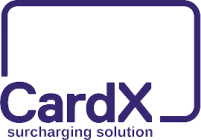
Good to know
Cashless payment options increase customer spending
Choosing the best credit card payments processor for your business
Selecting the right credit card processor directly impacts your ability to accept credit card payments across different channels, including in-store terminals, online credit card processing, and mobile options.
A reliable processor enables smooth, secure transactions, enhances customer experience, and supports cost-effective operations tailored to your business needs.
You can compare and choose your provider, or simply select one of our top three rated companies.
Best credit card processing companies
Key factors to consider when selecting a credit card payment processor
Choosing a provider involves evaluating features that match both operational goals and customer expectations.
Here’s what to prioritize:
- Transparent fee structures: Look for a provider with clear, upfront pricing on transaction fees, setup costs, and monthly charges. Knowing your fee structure helps prevent unexpected expenses and simplifies budgeting.
- Advanced security features: Prioritize processors that comply with PCI DSS standards and offer data encryption to protect against fraud. Strong security measures are essential for building customer trust and safeguarding information.
- Responsive customer support: Access to knowledgeable, 24/7 support prevents delays and resolves technical issues quickly. Many providers offer support through multiple channels, including phone, chat, and email.
- Integration with business systems: Ensure the processor’s software integrates smoothly with your POS (point-of-sale), accounting, and CRM systems. Smooth integration avoids compatibility issues and keeps operations efficient.
Essential equipment for credit card processing
Choosing the right equipment is critical for secure and efficient payment processing.
Credit card terminals / POS systems
Both credit card terminals and POS devices are ideal for in-store setups, enabling fast, secure transactions. Look for models with features like swipe, chip, or contactless payment support to enhance the customer experience.
Mobile readers (on the go)
For businesses on the go, phone-based credit card readers offer flexibility, allowing you to accept payments via smartphones or tablets. These are perfect for service-based businesses or events outside of a traditional storefront.
Virtual terminals (online payments)
A virtual terminal allows businesses to process payments online without requiring physical hardware. This is particularly useful for phone orders or remote operations.
Each of these tools supports small business operations by simplifying transactions and ensuring secure payment handling.
Top rated credit card processing companies for small businesses
Step-by-step guide to setting up credit card processing
Setting up credit card processing isn’t too complicated. Follow this step-by-step guide to start receiving credit card payments in your small business.
Research and compare providers
Review pricing structures, customer feedback, and additional services to find the best fit for your business.
Understand all fees
Confirm all transaction fees, setup charges, and any hidden costs upfront.
Choose the right hardware
Select POS systems or phone credit card readers based on your business model, whether for a storefront, online sales, or mobile transactions.
Ensure compatibility with existing systems
Verify that the processor integrates smoothly with your POS, accounting, and CRM systems.
Train your team
Properly trained staff are essential for efficient, secure transactions and smooth customer interactions.
Looking to start accepting payments now? Check out our top 3 credit card processing companies.
Enter the link, provide your details, and receive an instant free quote.
Key steps for setting up online credit card processing.
Finding the cheapest credit card processing company
When cost is a major factor, follow these steps to secure the cheapest processing solution for your small business:
- Compare fees and rates: Look for transparent pricing models, low transaction fees, and minimal setup or monthly costs.
- Evaluate cost-saving features: Choose processors with options like tiered pricing or volume discounts that match your business needs.
- Avoid hidden charges: Confirm there are no additional fees for PCI compliance, account maintenance, or transaction minimums.
- Leverage reviews and comparisons: Use verified reviews to identify budget-friendly providers with a strong reputation for service quality.
Top rated credit card processing companies
Understanding credit card processing fees
Awareness of fee structures in credit card processing is essential for managing costs effectively.
Here are the main fees involved:
- Monthly service fees: Cover account maintenance and support access, often charged by the provider.
- Setup fees: Initial fees for setting up an account or installing necessary hardware.
- Transaction fees: Fees applied per transaction, which can vary based on payment type and processor.
- Security and compliance fees: Include PCI compliance and fraud prevention measures, essential for protecting sensitive information.
- Chargeback fees: Fees for handling customer disputes, covering administrative costs associated with resolving transaction issues.
Understanding these fees helps you select a processor with transparent pricing, making it easier to manage your budget.
Payment processing equipment – terminals, readers, and mobile options
Selecting secure card readers
Quality card readers accept various payment types, including chip, magnetic stripe, and contactless options, offering versatility and secure handling of transactions. The right card reader can enhance customer convenience and speed up transaction times, supporting a smoother payment process.
Best credit card readers providers
FAQs
What is a credit card processor?
A credit card processor facilitates electronic payments by acting as an intermediary between your business, the customer’s bank, and the credit card network. They manage technical aspects like authorization, security, and settlement, ensuring fast, secure transfer of funds.
Our top 3
What’s the difference between a credit card processor and a merchant services provider?
While both enable electronic payments, a credit card processor focuses on transaction authorization and settlement, while a merchant services provider typically offers a broader range of payment solutions, such as POS systems and fraud prevention.
How can I accept credit card payments on my website or phone?
To accept credit card payments online or on your phone, choose a processor that supports both online credit card processing and phone-based payments.
Many providers offer seamless options with phone credit card readers and integrations for e-commerce platforms, allowing you to process transactions securely on any device.
Key considerations when selecting a processor for small businesses?
When choosing a credit card processor, assess factors like fee structure, data security, customer support, and integration with existing systems. These elements ensure that the processor supports your business effectively, contributing to a smoother operation and better customer experience.
Why is choosing the right credit card processor important?
The right processor enhances transaction security, minimizes fees, and provides dependable support, helping to lower costs and improve customer experience through reliable, secure transactions.
What types of credit card processing solutions are available?
Payment processing solutions include in-store POS systems, online payment gateways, and mobile readers for flexible payment acceptance. Each type supports specific business models, so select one that aligns with your needs.








